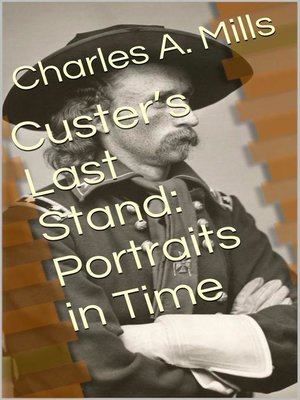
Sign up to save your library
With an OverDrive account, you can save your favorite libraries for at-a-glance information about availability. Find out more about OverDrive accounts.
Find this title in Libby, the library reading app by OverDrive.



Search for a digital library with this title
Title found at these libraries:
| Library Name | Distance |
|---|---|
| Loading... |
Since his death along the bluffs overlooking the Little Bighorn River, in Montana, on June 25, 1876, over five hundred books have been written about the life and career of George Armstrong Custer. The earliest works portrayed Custer as a romantic, knightly figure, a paragon of virtue and chivalry. Custer was the valorous paladin killed in the cause of Christian civilization and American Manifest Destiny.
Views of Custer have changed over succeeding generations. Custer has been portrayed as a callous egotist, a bungling egomaniac, a genocidal war criminal, and the puppet of faceless forces. For almost one hundred and fifity years, Custer has been a Rorschach test of American social and personal values. Whatever else George Armstrong Custer may or may not have been, even in the twenty-first century, he remains the great lightning rod of American history. This book presents portraits of Custer and the Battle of the Little Bighorn as they have appeared in print over successive decades and in the process demonstrates the evolution of American values and priorities.
The broader importance of the controversy that rages around the Battle of the Little Bighorn centers on the nature of truth. The battle (which by modern standards would be classified as little more than a frontier skirmish) lasted at most six hours, and yet, after almost one hundred and fifty years, we cannot agree upon what happened, why, or who was responsible. This roiling controversy forces us to ask, "How do we know what we know, and how do we know if it is true?"







